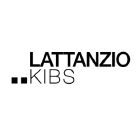WORKING WITH DG ECHO AS AN NGO PARTNER | 2021 - 2027
PROCUREMENT
Food and Medical Supplies
Partners can purchase from suppliers on other donors’ list as they would purchase from any other supplier, as long as the quality assurance rules of DG ECHO in the document “Provisions on medical and food supplies applicable to actions funded under the EU Humanitarian Partnership Certificate 2021 –2027” are met. The difference is that since these suppliers have been pre-certified by those donors, it should be easier for Partners to obtain the proof that the standards are met.
Pre-certification of suppliers does not fall within the scope of the mission of the PIC/S as the aim of PIC/S is to develop common standards in the field of Good Manufacturing Practices (GMP) hence to ensure that the production of medicines meets the required quality standards.
Mosquito nets are not considered as medical supplies while ready-to-use therapeutic food (RUTF) to address acute malnutrition is considered as such.
General Procurement
The beneficiary that did not request several offers must, in case of a check, review, audit, or investigation, be able to demonstrate that the purchase was made in accordance with its purchasing policy, that the price corresponds to market value, and that the quality criteria were clear and aligned with the purpose of the purchase.
Each person involved in the partner’s procurement procedure should avoid any conflict of interest. A best practice is to assign the decision to award a contract to an evaluation committee rather than to a single individual. Members of the evaluation committee must disclose any existing conflict of interest.
The beneficiary should have clear rules and guidance in place for staff on how to handle situations of conflict of interest. These rules should specify whom to contact for advice or to disclose a conflict and outline the appropriate actions to take when necessary.
It is also considered good practice for all staff involved in the procurement process to formally sign a declaration of no conflict of interest before performing their duties.
Subcontracting
Subcontractors participate in the action by carrying out action tasks for the beneficiary, which could consist for example in the purchase of goods, works or services that are identified as action tasks.
On the other hand, suppliers of goods, works or services do not implement action tasks themselves, but only make resources available to the beneficiary.
Yes, implementing partners (third parties receiving financial support) may subcontract or procure goods and services, provided that they comply with the same conditions and procurement principles that apply to the beneficiaries under the grant agreement.
Similarly, subcontractors and suppliers may subcontract further, provided this is explicitly allowed under their contractual arrangement with the beneficiary and remains consistent with the applicable procurement rules and principles of sound financial management.




